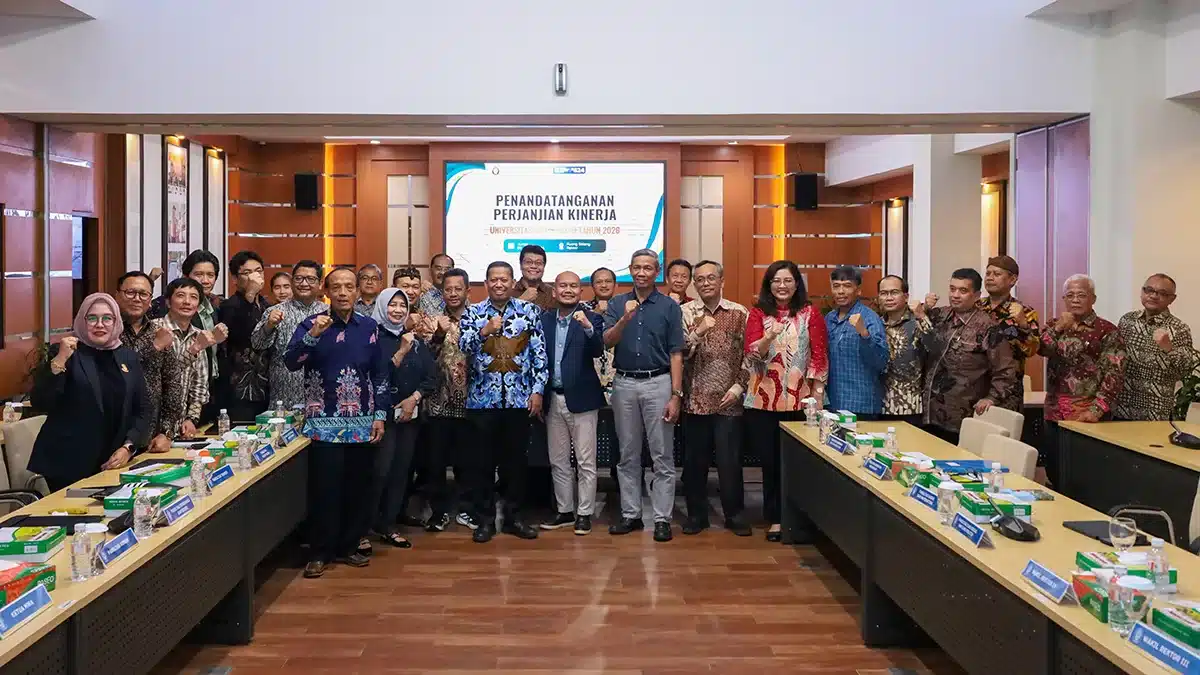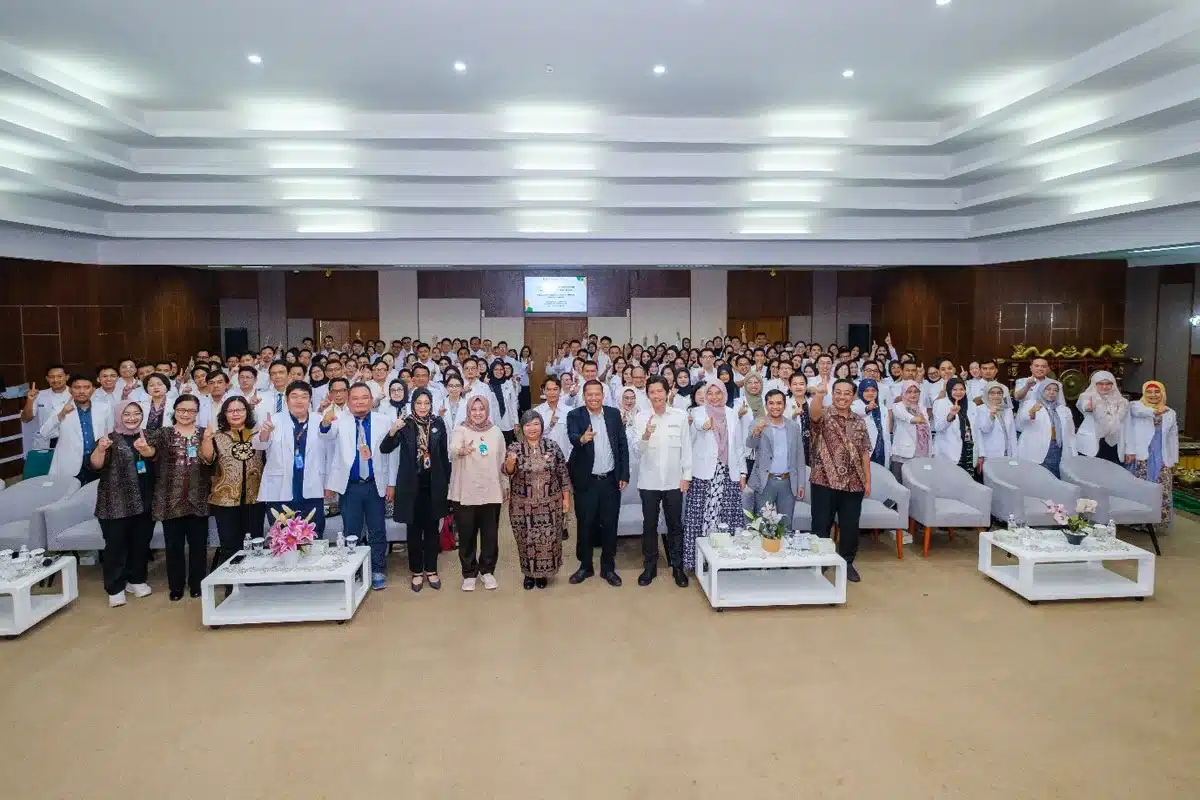Tuna is the second largest fishery export commodity with high economic value in Indonesia. In fact, one bluefin tuna can penetrate the price of IDR 44 billion. Unfortunately, the management of tuna in Indonesia is felt to be less than optimal with the presence of various problems, such as an inadequate understanding of the benefits of fisheries management; there are still illegal, unreported, unregulated fishing; regulatory compliance and enforcement that need to be improved; the quality and the data that is distributed is not sufficient.
These problems urged Prof. Dr. Ir. Abdul Ghofar, MSc., to conduct research related to tuna fisheries management. Through his research, the lecturer at the Faculty of Fisheries and Marine Sciences was inaugurated as a Professor with his speech entitled “Tuna Fishery Management and Its Impact in Indonesia”, on Wednesday (15/06) in the Open Session of Academic Senate of Diponegoro University.
The intended fishery management idea proposed by the professor is all efforts that are integrated in information gathering, analysis, planning, consultation, decision making, allocation of fish resources, as well as implementation and enforcement of laws and regulations in the field of fisheries by the government or other authorities. The main goal is to achieve sustainable productivity of aquatic biological resources.
So far, according to Prof. Abdul Ghofar, the Government has tried to overcome these problems in several ways, including preparing a Fishery Management Plan, Action Plan and Strategy for Tuna Utilization; government involvement in the Regional Tuna Fisheries Management Organization (RFMO) which includes Diponegoro University as one of the pioneers and leaders; and provide support for fisheries improvement programs. Although these efforts have not been maximized and need to be improved collectively, the government’s policies deserve appreciation.
Therefore, based on the results of research and involvement in the fisheries management process at various levels, Prof. Abdul Ghofar proposed Research Development plan which includes:
- Data collection and monitoring, especially in relation to fish and fishery biology data;
- Strategic commodities include fish species which are important export commodities regarding the needs of the wider community;
- Policy analysis and investment as the basis for effective and inclusive marine and fisheries policies. Studies on improving fisheries and investment will continue to cover all strategic commodities;
- Integration of conservation and fisheries with an appropriate adhesive, particularly through surveys of fish larvae and eggs which has proven to be quite effective in increasing community participation and for the government in issuing new regulations on fisheries-integration and conservation;
- Climate change impacts. Previous studies on the impact of El-Nino and Southern Oscillation on fish resources will continue to cover different types of tuna and cover a wider area.
In addition, the man who has various teaching experience, are a resource persons, are a guest lecturers, as well as dissertation and thesis supervisors at several foreign universities gave several suggestions regarding steps to Strengthen Fishery Management, which include:
- Increasing understanding and awareness of the importance of sustainable fisheries management,
- Effective and inclusive policy formulation,
- Coordination across sectors and administrative areas,
- Strengthening Fisheries Management Area Governance,
- Dissemination of Fish Resource Assessment Protocol,
- Information technology support and mentoring of young researchers,
- Gender equality,
- Bridging and Partnership Strengthening Programs so that the programs launched are accepted by policy makers and related parties.
Prof. Dr. Ir. Abdul Ghofar, MSc., was inaugurated as the 21st Professor at the Faculty of Fisheries and Marine Sciences Undip. Until now, there are 161 active professors teaching at Diponegoro University. (Aslam – PR Team)









